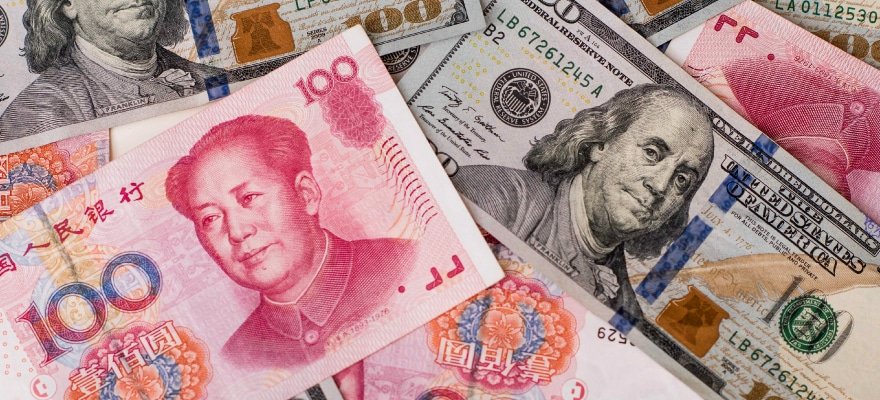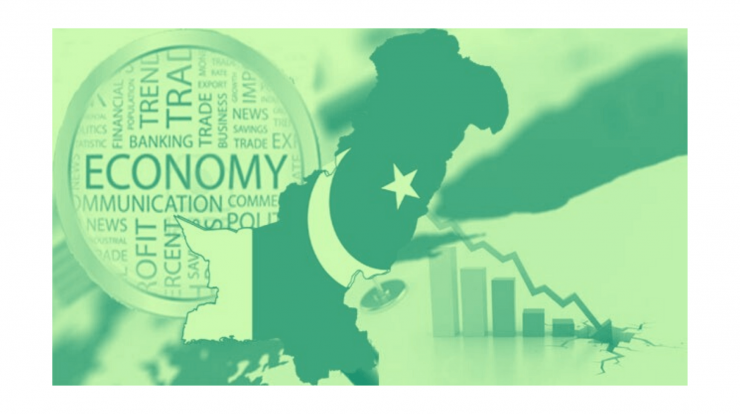KARACHI: As the world is rocked by unforeseen conflicts; the local politics with hybrids gone rogue, the Pakistani economy has been like an uncared-for orphan child; who is no one’s priority. Pakistan’s economy is a slogan, open to exploitation by various stakeholders; yet no stakeholder is sincere in solving the problem in its real sense.
As the world at large sinks into a potential global conflict, forcing weak nation-states like Pakistan to choose sides; either out of choice or of duress, the country is itself heading towards; might be the most controversial or to say it plainly; the make or break general elections scheduled for February in the year 2024. In such a scenario, any further neglect of the economy can fatally boomerang, not just on the nation-state; but has the devastating potential of undoing the much-touted ‘national security state’.
Tackling the question of the economy itself demands the ascendency of experts rather than the ascendency of anyone yielding power or political influence. Due to the absence of independent experts in the national arena since the formative days of the country; now it is a dominant trend or truth that who so ever is in the seat of power ‘visible’ or ’invisible’ is free to call the shots. These shots, rather short-term injection shots are able to solve the problem in the short run, but are unable to answer the contradictions in the long run.

A bird eye view of the country’s economic history reveals that investment inflows, remittance inflows and erratic export opportunities, like the early years “Korean Boom” were the mainstay of the so-called ‘impressive economic performance’. Regretfully, no effort was ever made to create an environment where the stakeholder feel is taken into consideration for an objective-oriented economic growth strategy.
Experiences next door in India reveal that the economic policy-making traditions compulsively incorporated the stakeholder input. During the freedom struggle, the Indian businesses were onboard the revolutionary vanguard party the Indian National Congress. On the Pakistani side, there was no initiative on part of the Muslim League, rather all the leaders of the Pakistani revolutionary vanguard were interested about the new curtains for their furnished lodgings. The only isolated initiatives were what the father of the nation was able to persuade through his personal good offices; like the launch of media mouthpiece like DAWN or the establishment of Habib Bank.
Likewise, Abol Hasan Isphahani volunteered his personal airline to become the national flag carrier in the formative days. The Indians maintained their tradition irrespective of whether the party at the center was following Fabian Socialism, Private sector led reform or polity heavily laced with nationalist/religious radicalism. As the elections approach in India or if there is eve of budget formulation, the Indian Chambers Federation (FICCI) and the Confederation of Indian Industry (CII) has a built in tradition to invite the Prime Ministerial hopefuls for a cross examination of the respective party manifestos.
It has not been something out of the blue that the Communist Party of India (Marxist) under Jyoti Basu was able to rule the Indian Bengal for two decades as it customized its Marxist narrative according to the needs of the industry. That customization was a logical outcome of the constant dialogue between industry leaders and political leaders. Likewise, FICCI and CII had an integral role, when MNCs and foreign governments are interested in investment in the Indian business landscape, often visiting PMs and presidents making it a point to meet these federations and chambers.
As opposed to that, Pakistani chambers or the business community at most they could influence the Ministry of Finance through the Finance bill portion of the Budget documents; which primarily only deals with the micro economic aspect and not the overall one.
That divorce from the overall policymaking exercise has been partially responsible for what we witness a progressively high cost nature of the Pakistani economy during the last three and a half decades. The continuous intervention of the IMF and its liaison with the front end government without taking into consideration the aspirations and input from the private sector has been responsible for much of the macroeconomic quagmire Pakistan is into.
The default concern of the nation state government; front end or the one in the shadows has been compliance to the IMF dictates; then anything to do with bracing of the Pakistani economy for an ocean of trade based growth strategy like the commencement of the WTO trade regime in 2005.
Pakistan, despite being an agricultural country had no agenda to follow within to safeguard its interests in the international market as the result of WTO regime. Pakistan despite being the pioneering country for the Basmati Rice was at loss to crave a place for itself through the “geographical indication” clause of the WTO based brand regime. Instead, what the world witnessed was exclusive rights for the Indian Basmati, which was ‘genetically engineered’.
It has been fate with other agricultural products. While in 2006/07, Indians were protecting their stakes in the famous Doha Round, Pakistan was more into brewing its local crisis and senselessly fighting a foreign war, not knowing that dividends of growing economy can dissuade many a militant away from self-destruction and persuade him to raise a family of his own.
The end of the Musharraf period in 2008 was followed by a seemingly civilian supremacy regime. However, as the default policy line of the civilian and military establishment has been to build up a shaky development paradigm on the foundations of a client state status, all the economic policy wizardry was restricted to how much Pakistan was able to accrue annually for the budgetary support courtesy the Coalition Support Fund (CSF). Other than that, the Kerry Lugar Bill was sought to divert the funding from military to the civilian setup. Here it may be pointed out that old CIA hand Bruce Reidel in his Foreign Policy article almost a decade ago listed Pakistan along with Israel and Egypt as the states constantly looking for the above mentioned budgetary support ‘injections’.
That approach supported by all the components of the Troika or establishment was instrumental in pushing the economy to the backbenches for all times. Here it is pertinent to note that the established order or the major political groups; favored and the ones in the wilderness all were more interested in point scoring or settling scores than any sincere effort put in place to get the economy out of the quagmire.
The so-called proactive approach undertaken by the then political dispensation in 2020-2022 and its backers was triggered more by the specter of skeletons in the proverbial FATF cupboard than any sincere bid to benefit the economy.
As things stand with the IMF program being negotiated before any government takes over after the February 2024 elections, the state is concerned with running the show as long as expenses are being managed. The built-in structures of economic and business dialogue, do not go beyond the budget proposals. The business houses are more concerned with cultivating a rapport with the powerful than any serious effort to boot the economy.
The elections, followed by the customary change of guard will be certainly followed by hard decisions. In 1972, 131 percent devaluation was the baggage accrued by the failing Pakistani economy in the late sixties uptil the 1971 civil war. In 1988, the growing budget deficit during the closing years of Zia was the baggage to be managed by the BB-led PPP government.
PPP was again present for the ICU services in 2008, when the subsidy was done away with by the Gilani administration, causing cost-push inflation as well as public outcry. Regretfully, nothing different is expected even now. What will follow will be the political gaming coupled with geo-political positioning. The economy will be managed with swift injections and bonanzas. There will be few who will benefit from these bonanzas. However, the economic meltdown will be managed, not eliminated. In the meanwhile, the rationale for belief in the system by the majority might also erode at an escalatory velocity. Time will tell if the critical mass of the urban middle class rises to the occasion and turns the tide; a dream indeed; though a bad dream for the apologists of the current system; in place.










